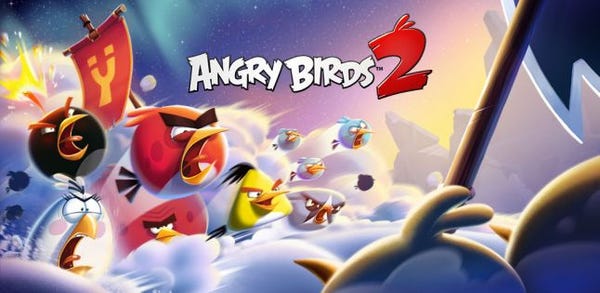
Co-Authored with Michael Katkoff
Why and how are casual games pivoting towards mid-core features? What differentiates Angry Birds 2 from all the previous Angry Birds games? For the first time a close chat with how the team at Rovio built Angry Birds 2 and what led them to make those bold design decisions.
Casual Games
Casual games is a relatively new genre that was arguably kicked off by PopCap when Bejeweled launched on browsers in 2001. The true growth of the genre was enabled by Facebook and driven by Zynga’s FarmVille and other Ville-style games. The third and largely ongoing growth started in 2012, when King took its popular Facebook game Candy Crush Saga to mobile. Today, when we talk about casual games, we tend to mean games with relatively simple gameplay, substantial active user base and somewhat limited monetization potential compared to more advanced games.
In short, casual games are generally targeted at people who may not traditionally consider themselves as gamers.
Casual games like Angry Birds, Candy Crush Saga, and Temple Run are typically distinguished by simple rules, reduced demand on time and limited need of skills demanded from the players. These characteristics sets casual games apart from competitive resource management oriented games like Clash of Clans, Clash Royale and Game of War. From a game design and cognitive load perspective, casual games have a straightforward core gameplay loop and simple currency sinks. In general, the session lengths in casual games are around three minutes. In contrast to more ‘core’ games, casual games also require players to do very less cognitive load management.
Why casual games and gamers might be maturing?
In an article published in early 2016 I speculated how masses of casual game players have come a long way since the early days of mobile games. As time has passed, casual games have been improved with new content and features. While we still play the same ‘old’ match-three, infinite runners and hidden object games, these games offer more deeper experience than their earlier version did 6 years ago.
I believe that casual gamers may be maturing due to:
1) Mastery of same old game mechanics.
2) Longevity and familiarity of playing the same genre and mechanics repetitiously.
3) Wearing off of the novelty value due to a flood of clones.
4) Introduction of ever deeper designs by game developers.

“As speculated, in between traditional genres now seemingly exists a massive pool of matured veteran casual player base!”
How to design for maturing casual players
This mass of matured veteran casual players may want to make a transition to more intricate gameplay but may be wary of high entry barriers, grinding, wait timers, base building, troop training, managing economies, social pressure of clans, cognitive load of making strategies that conventional mid-core games need (See mid-core loops above). All of which casual players hate. This can lead to a vacuum creation.
In short these veteran casual players may find the climb of casual games too SHALLOW, but mid-core too STEEP!
But this gap between casual and mid core genres can also be a window of opportunity!
Let’s look at how some top Devs. have successfully identified this gap and are experimenting to engage this audience.
Rovio Entertainment
Rovio Entertainment has seen unprecedented growth this year by experimenting and evolving it’s holster of casual games.

*Source: Seekingalpha
Rovio rose to fame with launch of its iconic smash hit Angry Birds title in December 2009, the game with its simple mechanics and ease of use on mobile enchanted masses of casual players and opened the world of games to many first time gamers, across the globe! The game was also boosted by the rise of iPhone and App Store. The game was simply perfect for the iPhone screen.

Let’s see how Angry Birds has evolved






































